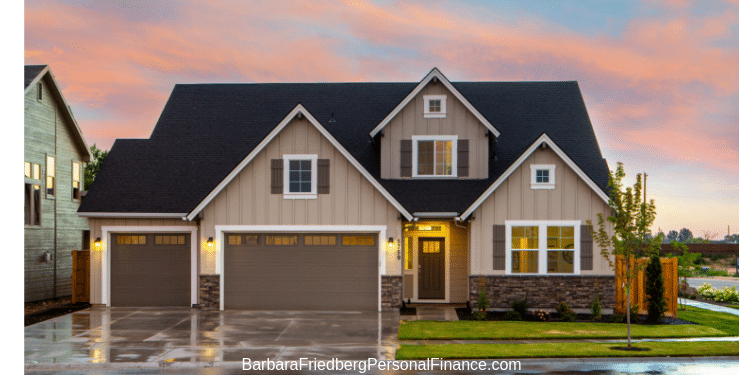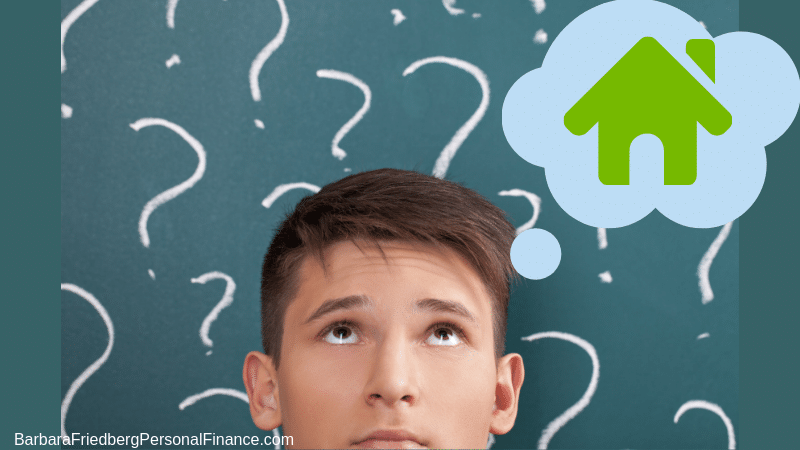Buying a House? Improve Your Credit Score First
There’s not an easy answer to the question, “What credit score do I need to buy a house?”
To buy a house, you need to borrow money from a lender, and that lender wants to make sure that you’ll pay the money back in a timely manner. The lender will check out your credit score before deciding whether to lend you money to buy a house and also to decide what interest rate to charge.
When shopping for a mortgage, it’s all about the interest rate.
Your mortgage interest rate determines your monthly payment amount. A lower interest rate equals a lower monthly payment!
The interest rate, also called the annual percentage rate or APR, is essentially the cost you assume for paying back the mortgage over a period of time rather than all at once. Your credit score impacts the mortgage interest rate you qualify for – lower credit score means, higher interest rate, and higher monthly payment.
When you realize how much money you can save over the mortgage life by improving your credit score, you may prefer to wait to purchase your home until you improve your credit score and can qualify for a lower rate.
Contents
What Credit Score do I Need to Buy a House?
The answer is, it depends.
While you can secure a mortgage with a low-ish credit score, you’ll pay higher mortgage interest costs than if you had a lower credit score.
Also, lower credit scores mean that you’ll need a higher down payment.
What is a good credit score?
Credit scores typically range between 300 and 850. The best credit scores are greater than 800. A good credit score is between 700 and 800. While most credit scores fall between 600 and 750.
Although all mortgage lenders have their own criteria, in general a score above 660 is usually required to take out a conventional home mortgage.
For those with less down payment and lower credit scores, an FHA or VA loan is an option.
Is it Hard to Get a Mortgage?
With a good credit score, steady income and a down payment, it’s not hard to get a job.
The lower your credit score, the more expensive and difficult it is to get a mortgage.
With little or no down payment, you may need to turn an FHA or VA loan. New equity-share programs like Unison help fund your down payment for a share in the home equity when you sell.
Read: Why and How to Diversify with Real Estate
What is the Average Credit Score to Buy a House?
The average credit score to buy a home varies by location. It also varies by credit score provider. There are three credit bureaus; Equifax, Experian, and TransUnion all with slightly different methods to determine your credit score.
A Credit Karma survey found the average credit score for U.S. homebuyers is 684. The credit scores for first time home buyers ranged from 662 to 730, depending upon their state of residence.
Can I Buy a House with Bad Credit?
It’s possible to buy a home with bad credit. Even if your credit is below the typical threshold, there are things you can do to qualify for a home mortgage, despite bad credit.
Steps to buy a house with bad credit:
- Organize and present documents that show you have income; bank statements, pay stubs, tax returns, investment account statements.
- Be transparent about debts and provide documentation to the lender.
- Get a co-signer, to sign the loan. A relative might be willing to sign on the loan as well. The co-signer must agree to make the payments if you run into financial trouble.
- Consider an FHA loan. These home mortgage loans are insured by the federal government and have lower requirements than conventional loans. FHA loans also require small down payments, typically below 5%.
- Evaluate whether to hire a company that will assist with repairing your credit.
FHA vs. Conventional Loan – Which is Best?
When figuring out what credit score you need to buy a house, it’s useful to consider your loan choices. If your income is modest and you have a small downpayment, then an FHA loan might be for you. Home buyers with 20% down and a steady job can go for a conventional mortgage.
For help with your down payment, get a partner!
Conventional Loan
A conventional mortgage loan is one not offered through a government entity such as FHA or the VA. Approximately 66% of all loans are conventional mortgages.
To qualify for a conventional loan you’ll need:
- A mid-600s credit score or better
- A debt-to-income ratio (the sum of your monthly debts divided by your monthly income) between 36% and 43%.
- A down payment of at least 20%. If your down payment is less, you’ll be required to pay for private mortgage insurance.
Bonus: Are You Cut Out to Buy a Fixer Upper?
Federal Housing Administration (FHA) Loan
An FHA mortgage loan is issued by an FHA-approved lender and insured by the Federal Housing Administration. FHA loans are designed for low-to-moderate income borrowers and require lower minimum down payments and credit scores than many conventional loans. FHA loans require a 3.5% down payment.
To qualify for an FHA loan you’ll need:
- 580 credit score or better.
- If your credit score is between 500 and 579, you can get an FHA loan as long as you have a 10% down payment.
How Does the Interest Rate Affect my Mortgage?
The difference between interest rates with a good and bad credit score can be as much as 1.5%, possibly more depending on the lender. The difference is significant for monthly payments and total interest paid. For example, on a 30-year fixed rate $200,000 mortgage loan, a person with a 630 credit score qualify for a higher 5.19% interest rate. The monthly payment would be $1,097 and the borrower would pay a total of $194,915 in interest on the loan.
Now, consider a person with an excellent credit score of 770. This person would typically qualify for the lowest interest rate, which is around 3.6% these days. On a $200,000 mortgage, the monthly payment would be $909 and total interest paid over 30 years would be $127,385.
The bottom line, you’ll spend almost $100 more on your monthly mortgage payment if you have the lowest credit score. But the real shock is the $67,530 more you spend over the life of the mortgage. That’s enough money remodel the home, pay for a child or grandchild’s college, or put toward retirement.
The first two examples are the extremes – the lowest and highest credit score/mortgage scenarios. If your credit score is at the lowest range, it might take several years to bring it all the way up to excellent. Raising your credit score just a little bit can still produce significant savings.
Here’s how your interest rate will be affected with various credit scores:
- 580-619: If you qualify for a mortgage loan, your interest rate will typically be 1% higher than the typical rate.
- 620-679 – Your interest rate may be .5% higher than someone with a good credit score.
- 680-739 – This is the average for conventional home buyers. You will typically receive the average home mortgage interest rate with this credit score.
- 740 or better – You’ll qualify for the best or lowest available mortgage rates.
What Credit Score do I Need to Buy a House? – Wrap Up
Buying a house remains part of the American dream. By increasing your credit score you’ll lower the total interest you’ll pay on a home mortgage. This saves you money monthly and up to tens of thousands of dollars over the life of the loan. If your credit score is in the lower ranges, pay your bills on time and reduce your total debt to improve your score.
Finally, if you’re ready to buy, but lack a 20% down payment, then consider partnering with Unisom.
Updated; May 22, 2019
*Disclosure: Please note that this article contains affiliate links which means that – at zero cost to you – I might earn a commission if you sign up or buy through the affiliate link. That said, I never recommend anything I don’t believe is valuable.


